Britain moves aggressively to sanction Rosneft, Lukoil and “shadow fleet” tankers — tightening the noose on shipping and insurance flows. Asian buyers like India may feel knock-ons in logistics, price spreads and compliance risk.
SarhindTimes Bureau | London / New Delhi / Energy Desk
London / New Delhi, October 17, 2025
In a sweeping escalation of energy sanctions, the United Kingdom on October 15 unveiled a fresh round of designations targeting major Russian oil firms — Rosneft and Lukoil — as well as dozens of tankers operating in the so-called “shadow fleet.” While India is not directly sanctioned in this round, the tightening of shipping and insurance constraints is already sending tremors through Asian crude markets. Refiners and traders warn of logistical bottlenecks, insurance price shocks, and narrower arbitrage windows. For New Delhi, the measures underscore a precarious balancing act: securing affordable energy supplies while managing compliance risk and diplomatic pressures in a shifting sanctions landscape.
Section I: What the UK Sanctions Cover & Why It Matters
Scope of the Measures
The UK government announced that the new package includes sanctions against Rosneft and Lukoil, two of Russia’s largest state-linked oil players, and 44 shadow fleet tankers. The measures impose asset freezes, director disqualifications, transport restrictions, and bans on British trust services.
These sanctions aim not merely at cutting Russia’s direct energy revenue but at choking off intermediary services and shipping pathways that enable continued crude flows. The shadow fleet — older tankers often used to evade sanctions — is a key target.
Significantly, UK officials named the possibility of third-country firms, including some in India and China, that facilitate Russian oil trade, among those under tightening scrutiny.
One Indian firm, Nayara Energy, which has Russian ownership links (via Rosneft), was included in the broader sanction targeting in some reports.
Mechanism: Shipping & Insurance Crunch
A central lever of these sanctions is restricting shipping, marine insurance, and financial services that enable Russian crudes to reach end markets. Even if cargoes exist, they may find it harder to secure insurance, charter services, or port access — especially if linked to British or western intermediaries.
Several traders cited that prior to these actions, British-based insurers and ship operators played a supporting role in the final legs of Asian deliveries of Russian crude. With those pathways constrained, shipments may have to rely on non-Western or more opaque shipping channels — increasing costs and risk.
Moreover, some ports in India and China have previously refused to unload shadow fleet tankers, citing regulatory or reputational risk.
Geopolitical Message
By targeting not just Russian producers but the logistics chain, London is signaling a more aggressive posture — essentially saying that facilitating Russian oil flows, directly or indirectly, will attract consequences. Analysts see this as a move to increase the friction for managing Russian exports globally, rather than just slapping upstream sanctions.
The inclusion of third-country references is also a warning: even buyers, refiners, or intermediaries are under watch.
Section II: Implications for Asia / India
Exposure Without Direct Targeting
Although India is not specifically sanctioned in this UK package, its deep purchasing ties with Russian crude make it vulnerable to spillovers. The indirect constraints on shipping, insurance, arbitration, and port access can amplify transaction risk and cost.
Several Indian refiners have reportedly signaled tentative adjustments to December crude intake, citing heightened compliance risk and freight uncertainty. Traders suggest arbitrage margins may shrink if shipping frictions rise.
Impact on Logistics and Freight
One of the immediate stress points is shipping availability. With more tankers in the shadow fleet or nontraditional vessels pressed into service, the quality, reliability, and routing of shipments may change. Freight rates may spike, and delivery times may elongate.
Insurance premiums for maritime transport of Russian cargoes could jump, or insurers may refuse coverage entirely in certain trades. That forces buyers to turn to riskier or costlier alternatives.
Refiners may also face constraints in selecting port routes, especially if certain ports limit or reject shadow fleet unloading.
Margins and Arbitrage Compression
Asian buyers often rely on discounted Russian crude grades relative to Middle Eastern or African alternatives. When the price gap closes due to sanctions-induced costs, the economic advantage of Russian barrels erodes.
If freight and insurance costs rise steeply, the landed cost of Russian crude may cross parity with (or be worse than) alternative grades — undermining the incentive to buy.
Refinery Adjustments & Tender Behavior
Refiners are likely to become more cautious in tendering for “risky” cargoes. They may demand greater liability coverage, stricter contractual clauses, or shorter lead times. Some may trim volumes or diversify toward more conventional supply sources.
Indian refiners have already been reported preparing to cut Russian intake gradually. The UK measures may accelerate that logic, particularly for December and early 2026 cargoes.
Inflation & Cost Risks
If supply constraints push crude costs up, downstream fuel costs may rise, feeding inflationary pressures in India. The government will be sensitive to consumer impact, especially in transport, agriculture, and industry.
Compliance Risk & Reputational Exposure
Indian entities involved in financing, shipping or intermediation of Russian crude may attract regulatory scrutiny from multiple jurisdictions. Banks and insurers may hesitate to engage in lines that could be interpreted as sanction circumvention.
Reputational risk is elevated: even incidental links to shadow shipping or opaque routeing may draw media and regulatory attention.
Political & Diplomatic Balancing
New Delhi must navigate carefully: maintaining energy supply flexibility, preserving relations with Russia (a strategic partner), while not alienating or antagonizing Western powers.
In past instances, India has pushed back against “unilateral” sanctions regimes that bypass the UN. In response to UK actions, New Delhi may reiterate that it does “not accept unilateral curbs” on trade. (Some reporting already indicates such a line from Indian authorities.)
In sum, India is exposed to “sanctions by proxy” — even while not being a named target, it must hedge risks across logistics, contracts, and diplomacy.
Section III: Market & Strategic Reactions
Trader Moves & Opportunism
Oil traders and refiners will likely exploit arbitrage windows aggressively — while they last. Some Russian barrels may still move where risk can be mitigated (e.g. via alternative insurers, transshipment, change of flags).
But as frictions rise, margins will compress, and volume flows may adjust. Asian buyers may shift toward more secure, fully-insured cargoes even at a premium.
Shift in Crude Sourcing
Buyers in Asia, including India, may tilt more toward Middle Eastern, West African, or U.S. grades to reduce exposure to sanctions risk. This rebalancing may accelerate.
However, such grade shifts may require changes in refinery configurations, blending, and logistics — which take time to adapt.
Strategic Hedging & Contracts
India and Asian refiners may negotiate flexible contracts with option clauses, alternate loading ports, backup suppliers, or dual-sourcing provisions. They may also demand stronger indemnity or insurance pass-throughs.
Some may use financial hedges or swap markets to manage price volatility risk induced by sanction stress.
Insurance & Shipping Market Adaptation
Marine insurers and P&I clubs may revisit exposures to sanctioned or risk-tainted shipments. Some may pull back, others may demand higher premiums or exclusions.
Shipowners may reflag vessels, use intermediary brokers, or try to bypass oversight — but with increased operational risk.
Longer-Term Realignments
If these sanction measures persist or intensify, structural shifts in global crude flows could emerge: Russia may deepen trade reliance on non-Western buyers, shadow routes, or barter deals. Asia may see more bilateral energy diplomacy driven by alternative alliances.
India may also weigh boosting domestic capacity (e.g. refining, storage) or accelerating renewable energy transitions to reduce import dependence.
Section IV: What to Watch in Coming Weeks
- Tender flow analysis: How Indian refiners bid in December / Q1 2026 crude tenders — volumes, premiums, contractual clauses.
- Shipping rates & insurance premiums: Spot freight and insurance cost trends for crude routes from Russia to Asia.
- Port acceptance reports: Whether Indian / Asian ports accept or reject shadow fleet tankers.
- Refinery run rates & blending changes: Whether Indian refiners start adjusting crude slates in response.
- Policy signals from New Delhi: Any formal guidance on energy trade, sanctions stance, regulatory risk mitigation.
- Diplomatic engagements: India-UK, India-UK trade talks, energy diplomacy forums.
- Market reactions: Price spreads between Russian vs Middle Eastern crudes, margin impacts, shifts in exports from Russia.
Section V: Strategic Takeaways
- The UK’s latest sanctions broaden the pressure on not just producers but the logistical chain— thereby increasing friction for all buyers and intermediaries.
- Asia (India especially) is vulnerable even without being named — disruption in shipping, insurance or port access can elevate cost and risk.
- Margins that once made Russian crude attractive may tighten, pushing some buyers to recalibrate.
- India must juggle energy security, cost imperatives, compliance risk, and diplomatic balance in a high-stakes environment.
- The next few weeks will test whether India leans harder into alternate suppliers or cautiously retains optionality in its Russian oil exposure.
Closing
In the evolving chessboard of energy sanctions, the UK’s fresh assault on Russian oil logistics may reverberate far beyond London. For Asia, and particularly India, the challenge is clear: ensure supply stability, manage costs, and steer cautiously amid rising legal, logistical and diplomatic crosswinds. As the ripple effects unfold, every tender, tanker routing, and insurance clause will be scrutinised — and few decisions will be risk-free.
#UKSanctions #RussianOil #IndiaRefiners #Shipping #EnergyMarkets #Compliance #ShadowFleet #GlobalOil #SanctionsRipple #Geopolitics











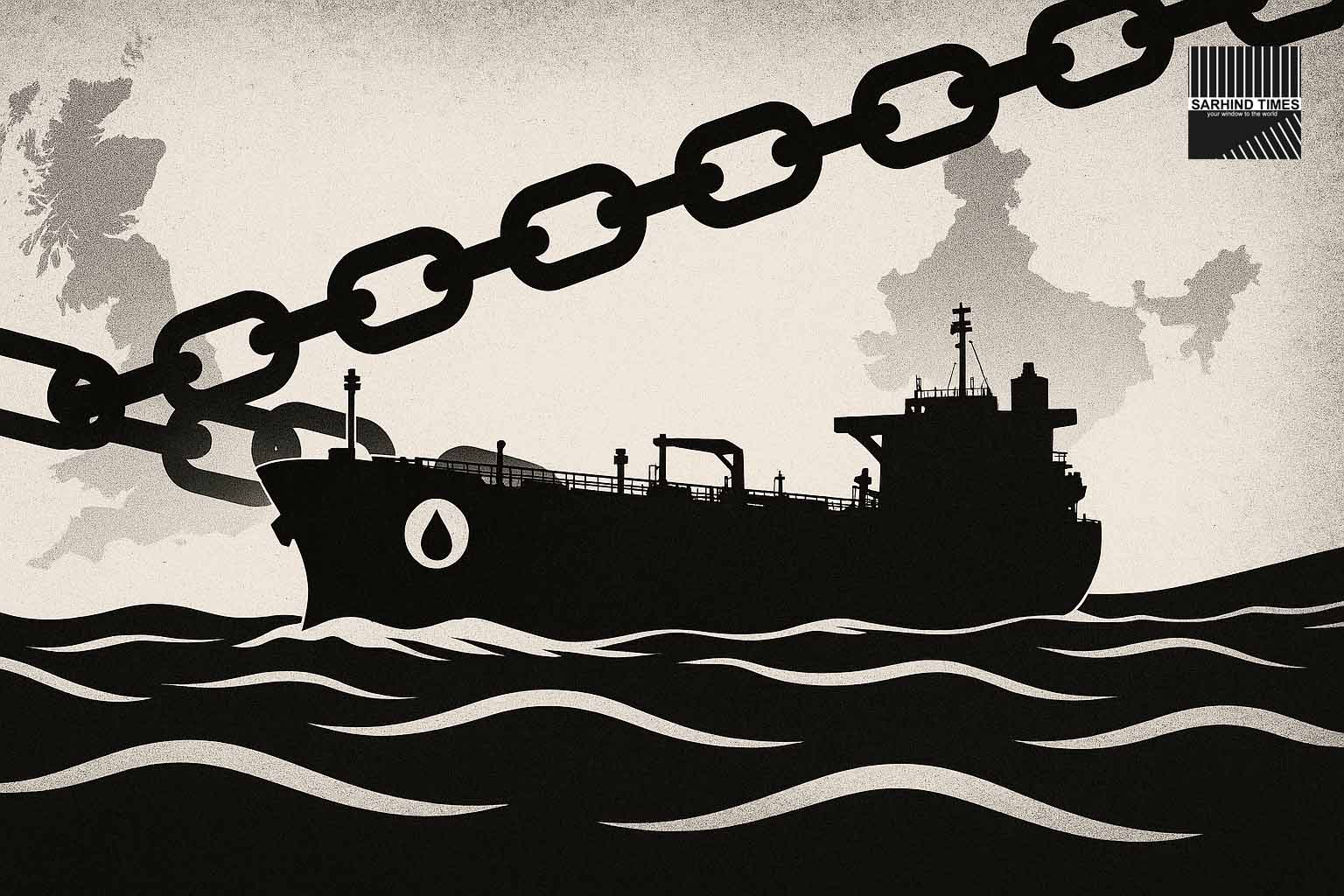
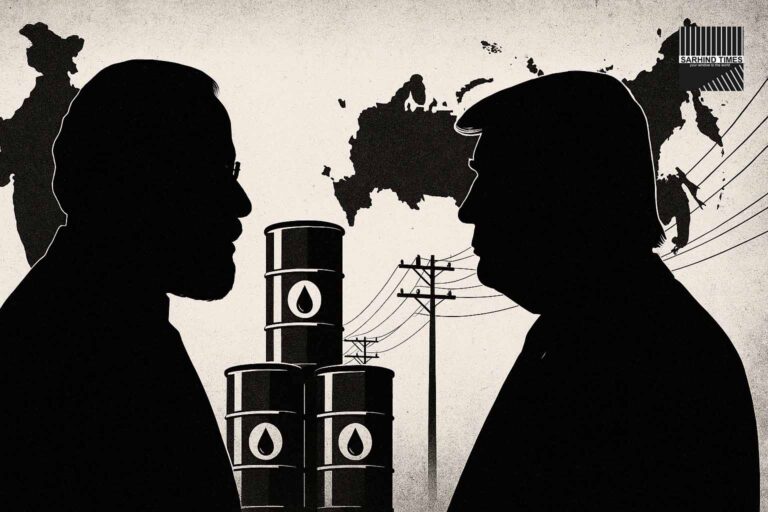
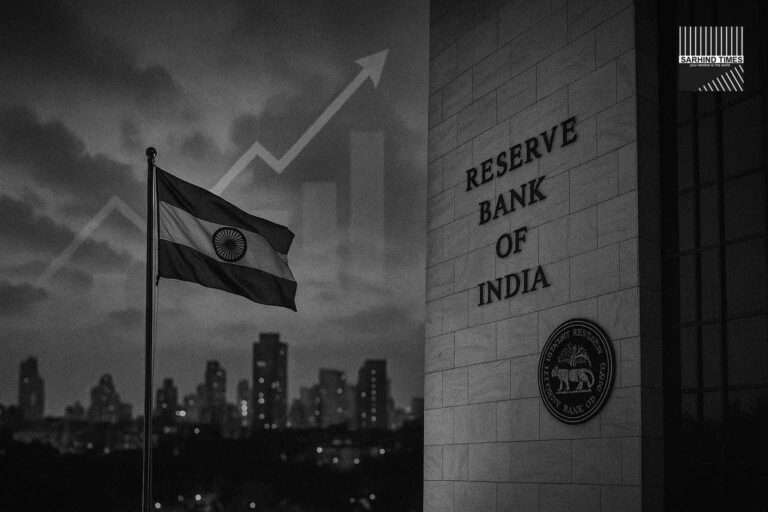
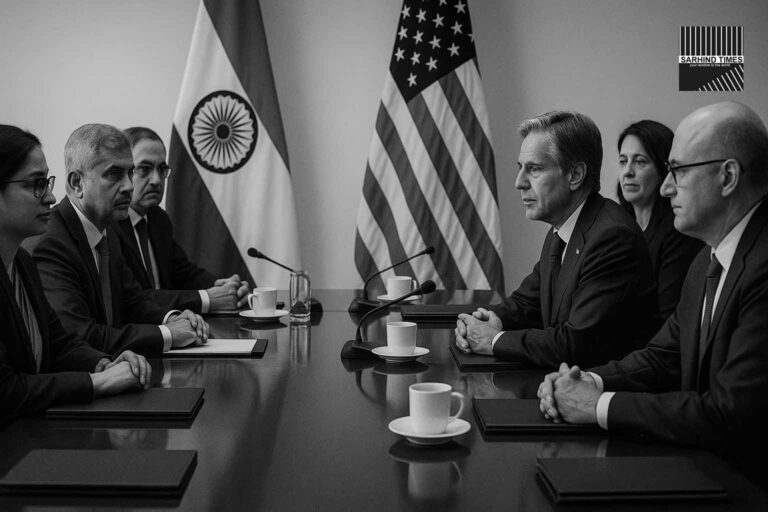





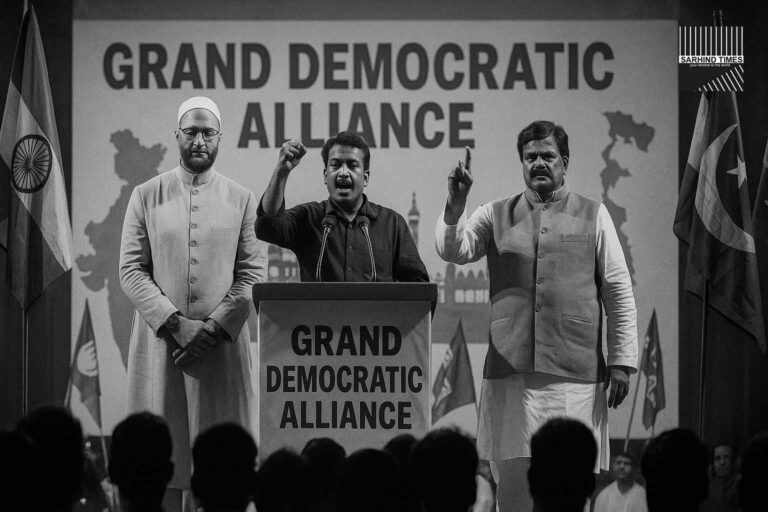


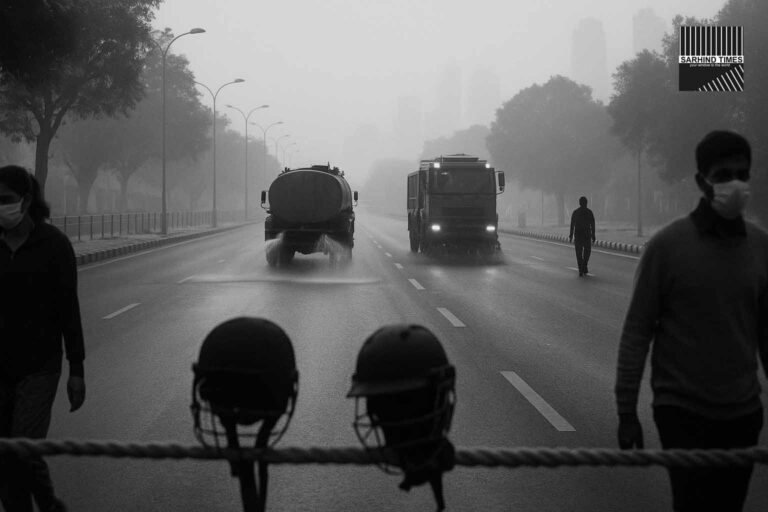

+ There are no comments
Add yours